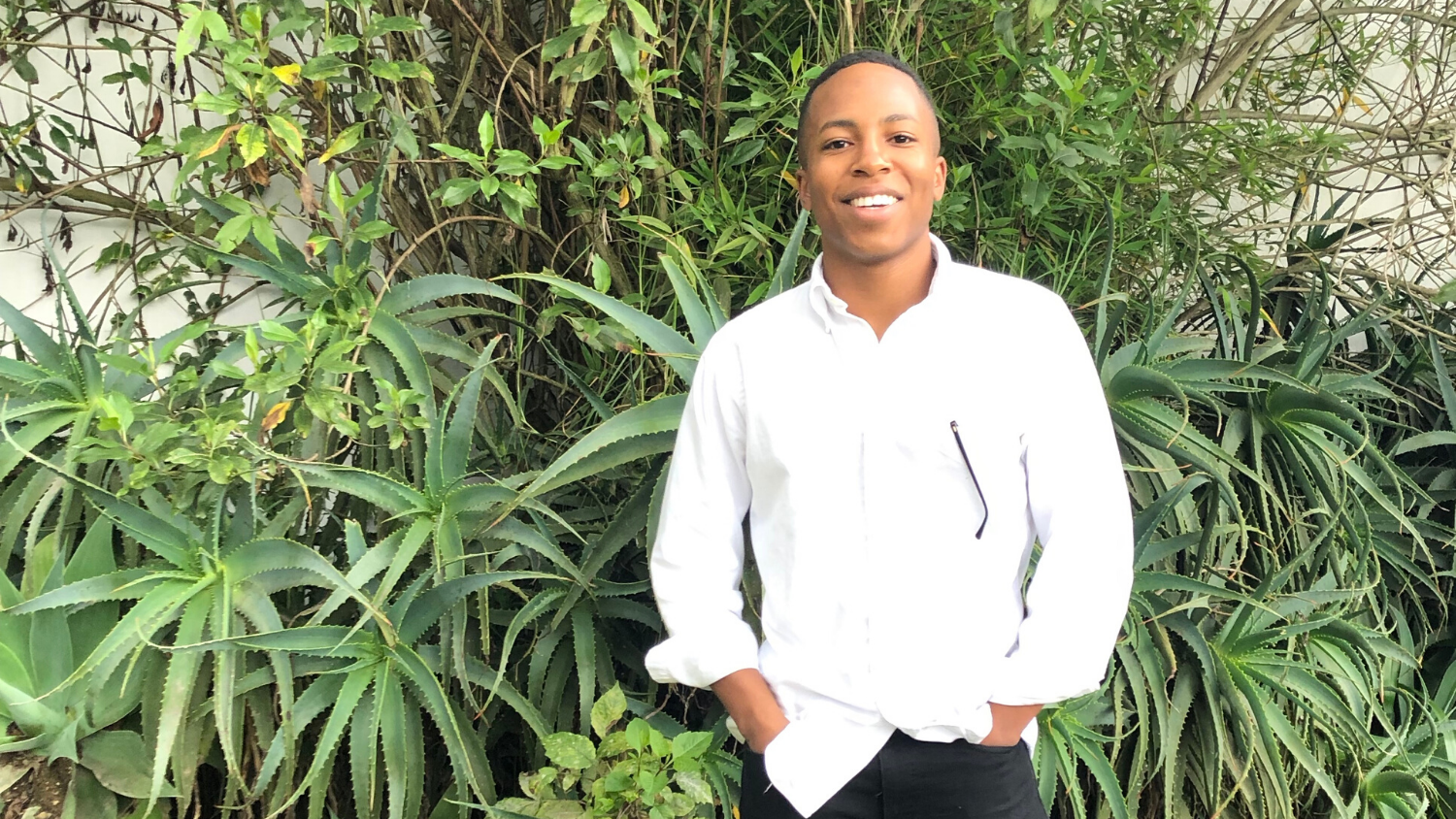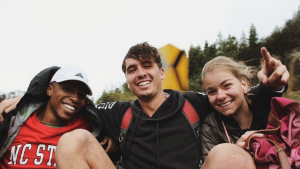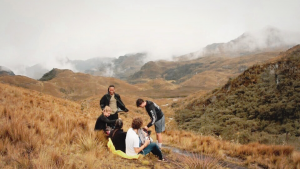Meet Shaun Gillie

Location and Program:
Spring, Universidad San Francisco de Quito; Quito, Ecuador
Major/Minor:
Polymer and Color Chemistry and Spanish FLL
Why did you choose to study abroad?
Traveling has been apart of my life from an early age, so studying abroad was not a hard choice for me. I specifically chose Ecuador because it is one of the few universities partnered with NC State that offers science and higher level Spanish classes . In addition, I had little experience in South America so it was the perfect opportunity to learn about it. Lastly, I wanted a different study abroad experience compared to more traditional locations.

What did you learn about yourself?
One thing that I took from Ecuador is an increased sense of independence. Being abroad gave me the opportunity to do what I wanted without being directly influenced by my inner circle. Everything that I was used to (shopping, traveling, cooking, entertainment) I could more easily do alone and I had very different experiences because of that. One of my most memorable experiences is my first solo trip to Colombia. That trip made me feel like I can do anything. I also learned that living abroad for an extended period of time is something that I have to do. There’s something about being in a foreign place and being out of place that increase my appreciation of being from the US, but it also makes me want to learn from others and become more worldly.
What was one of your favorite parts of your program?
Ecuador is an outdoors man’s paradise, so I was right at home. From summiting Volcán Cotopaxi, diving with sharks in the Galapagos Islands, and Canoeing down the Amazon into the rain forest, I don’t think I can choose. I am glad that I had the opportunity to visit these places before irreversible damage is done.
What advice do you have to future study abroad students?
Branch out and make friends who are different than you. My roommates were two Parisians and this completely changed my experience in Ecuador. Not only did it force me to speak Spanish to communicate, it introduced to new activities and culture that I had not been surrounded in. Branching out does not have to be done on the international level, however, you’re abroad so take the opportunity. It is easy to stick to the students that come from the same uni as you, but it keeps you in your comfort zone. Your time abroad is supposed to be where you grow in all aspects and sticking to what you know will limit that. Have fun, try new things, do what YOU want, and SAVE money so you can enjoy your time.

How did your study abroad experience prepare you for your future career?
The textile industry is a global industry, so being able to speak another language is a plus, but more importantly learning about communicating effectively – not just within the context of Latin America, but with people as whole – is something that I will be able to use on any team.
Were you surprised by anything during your time abroad?
U.S. Americans are very well received and liked in South America. A lot of pop culture has trickled down and is well-received in South America by multiple generations. It allowed me to make many connections in a short time. This is very different to experiences in Europe, where there is a lot of criticism toward sthe U.S. The second thing that surprised me the most, that is not often discussed, is the wealth gap. USFQ is a private university and one of the best in Latin America, and it comes at a price. The economic status of the typical student is upper-middle to upper class at the university. What surprised me is that many of the students do not recognize this because they stay in their respective bubbles around the university and do not venture out into the main city which is where the majority of us international students live. I met students who had never taken the infamous public transportation in Quito that is such a normal thing for the majority of quiteñas. The life that I experienced as a student at the University vs the life I saw when I was at my apartment was a big contrast.
In what ways did your identity have an impact on your experience abroad?
I would say being American was given precedent over being Black in South America. It may have been my facial features, the way I dressed, or my gringo accent (dead give away), that distinguished me from afrolatinos. An American passport comes with many privileges that others are not offered. While they were nice, it made me better aware of injustices and colorism that plagues Latin America. A professor at the university approached me early on and connected me with the small afrolatino population of the University. This allowed me to learn about their experiences and allowed me to share mine. However, there were some times when being black allowed me to become deeper ingrained in society. I was able to pass as Ecuadorian because of the way I looked compared to other students I was with. This gave me little benefits of not getting “gringoed”, getting a menu in Spanish, strangers starting small talk, and not being stared at in public.While those are small things, they did make me feel less of an outsider in my new home. My biggest advice is don’t believe everything you read or hear. This changes your perspective and make you fearful of seeing the world. Everyone has different experiences so don’t let someone shape yours.
Would you do it again?
100%. If I could have stayed for a year I would have.